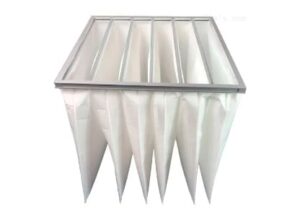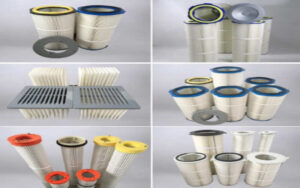HEPA (High-Efficiency Particulate Air) filters are celebrated for their exceptional ability to enhance indoor air quality by capturing microscopic airborne particles. Widely used in homes and offices, these filters offer numerous health and operational benefits but also come with specific limitations. This article delves into the science behind HEPA filters, their advantages and disadvantages, and factors to consider before incorporating them into your environment.
What Are HEPA Filters?
HEPA filters are highly efficient air filtration systems engineered to trap 99.97% of particles as small as 0.3 microns. These filters comprise dense layers of microscopic fibers, often made of materials such as glass or polypropylene. Many HEPA filters also incorporate activated charcoal layers, which absorb gases and neutralize odors, making them versatile in improving indoor air quality.
| Feature | Description |
|---|---|
| Filtration Efficiency | Captures 99.97% of particles ≥0.3 microns |
| Materials | Fiberglass, polypropylene, or similar synthetic fibers |
| Additional Layers | Activated charcoal for gas and odor absorption |
| Applications | Homes, offices, healthcare facilities, and cleanrooms |
Advantages of HEPA Filters
Improved Air Quality
HEPA filters excel at removing common airborne contaminants such as:
- Allergens: Pollen, pet dander, and dust mites.
- Mold Spores: Critical for individuals prone to respiratory issues.
- Smoke and Particulates: Effective at mitigating indoor pollution sources.
By reducing these particulates, HEPA filters create healthier living and working environments, particularly for individuals with allergies, asthma, or other respiratory conditions.
Energy Efficiency
Using HEPA filters in HVAC systems prevents the buildup of particulates that can obstruct airflow. This ensures smoother operation, reducing energy consumption and promoting cost-effective heating and cooling.
Longevity and Durability
HEPA filters typically outlast standard furnace filters, requiring fewer replacements over time. This makes them a cost-effective investment for long-term air quality management.

Disadvantages of HEPA Filters
While HEPA filters are effective, they come with several considerations:
Initial and Maintenance Costs
High-quality HEPA systems can range from a few hundred to several thousand dollars, depending on coverage area and specifications. Additionally, regular maintenance and replacement filters can add to the ongoing costs.
Noise Levels
Many HEPA filters produce a low hum or buzzing noise during operation, which may be disruptive in quiet settings like bedrooms or private offices.
Limitations in Filtering Gases
HEPA filters are designed to trap particulates but may not effectively filter harmful gases or fumes. This limitation can be mitigated by choosing systems with integrated activated carbon layers.
| Drawback | Details |
|---|---|
| Cost | High initial and maintenance costs |
| Noise | Audible humming or buzzing during operation |
| Limited Gas Filtration | Ineffective for volatile organic compounds (VOCs) or fumes |
| Potential Ozone Emission | Some models may produce trace ozone levels |
Practical Considerations for HEPA Filter Use
Customization for Individual Needs
HEPA filters are particularly beneficial in homes and offices where individuals suffer from allergies or respiratory conditions. However, in quiet environments, the noise factor may outweigh the advantages.
Office and Manufacturing Applications
In commercial settings, HEPA filters are ideal for controlling particulates and enhancing air quality in areas prone to dust or pollution. Regular maintenance is essential for sustained performance, and professional assistance can help streamline this process.
Balancing Benefits and Drawbacks
HEPA filters are a robust solution for improving indoor air quality. However, their effectiveness must be weighed against costs, noise, and specific environmental needs. Consulting with professionals can ensure that the selected system aligns with your requirements.
| Aspect | HEPA Filter Impact |
|---|---|
| Health Benefits | Improved respiratory health |
| Operational Costs | Higher upfront but durable savings |
| Suitability for Spaces | Best for allergen-sensitive areas |
| Environmental Concerns | Requires careful model selection |
Conclusion
HEPA air filters are a powerful tool for combating indoor air pollution, fostering healthier and more productive spaces. Their utility in both residential and commercial applications makes them a popular choice, provided their drawbacks are adequately managed. Whether used in homes, offices, or industrial environments, HEPA filters deliver cleaner air and peace of mind.






